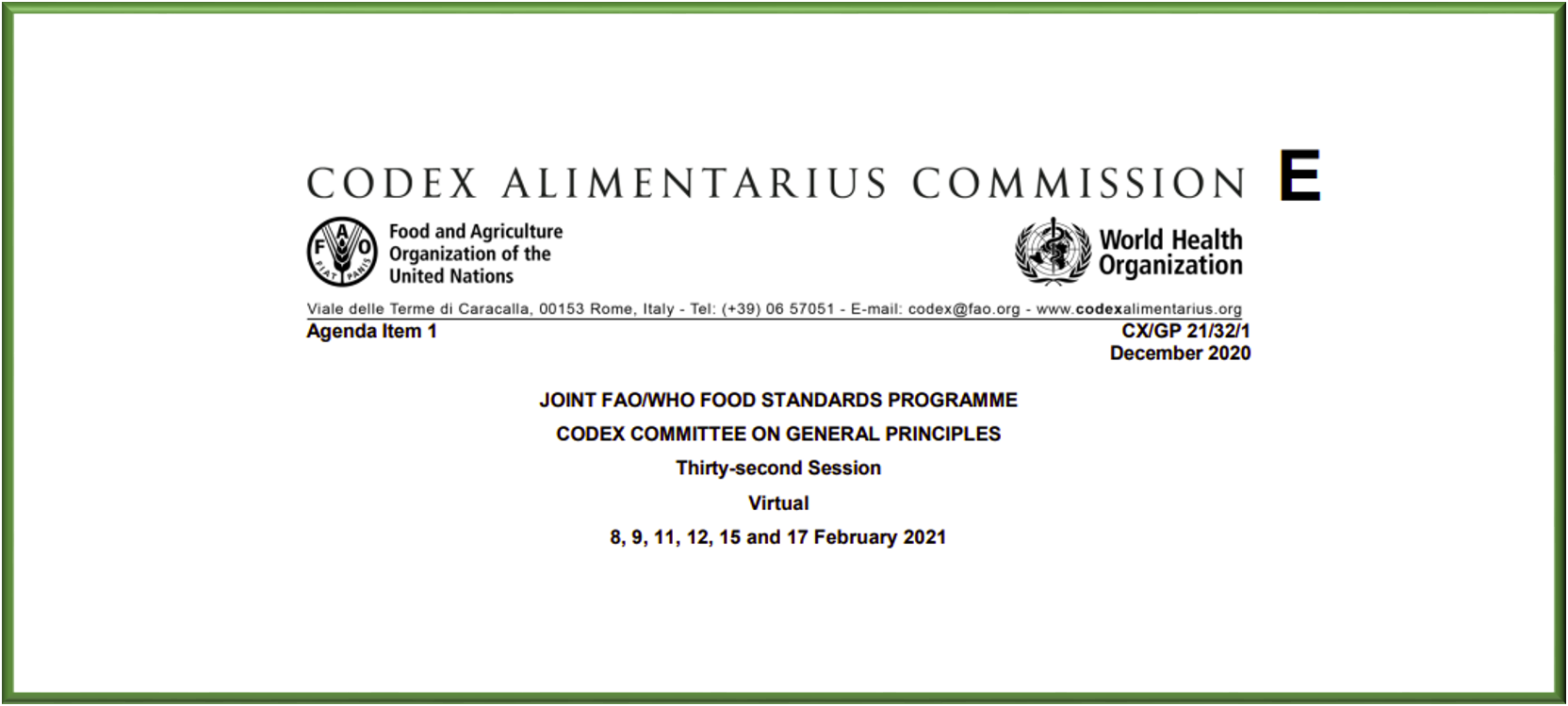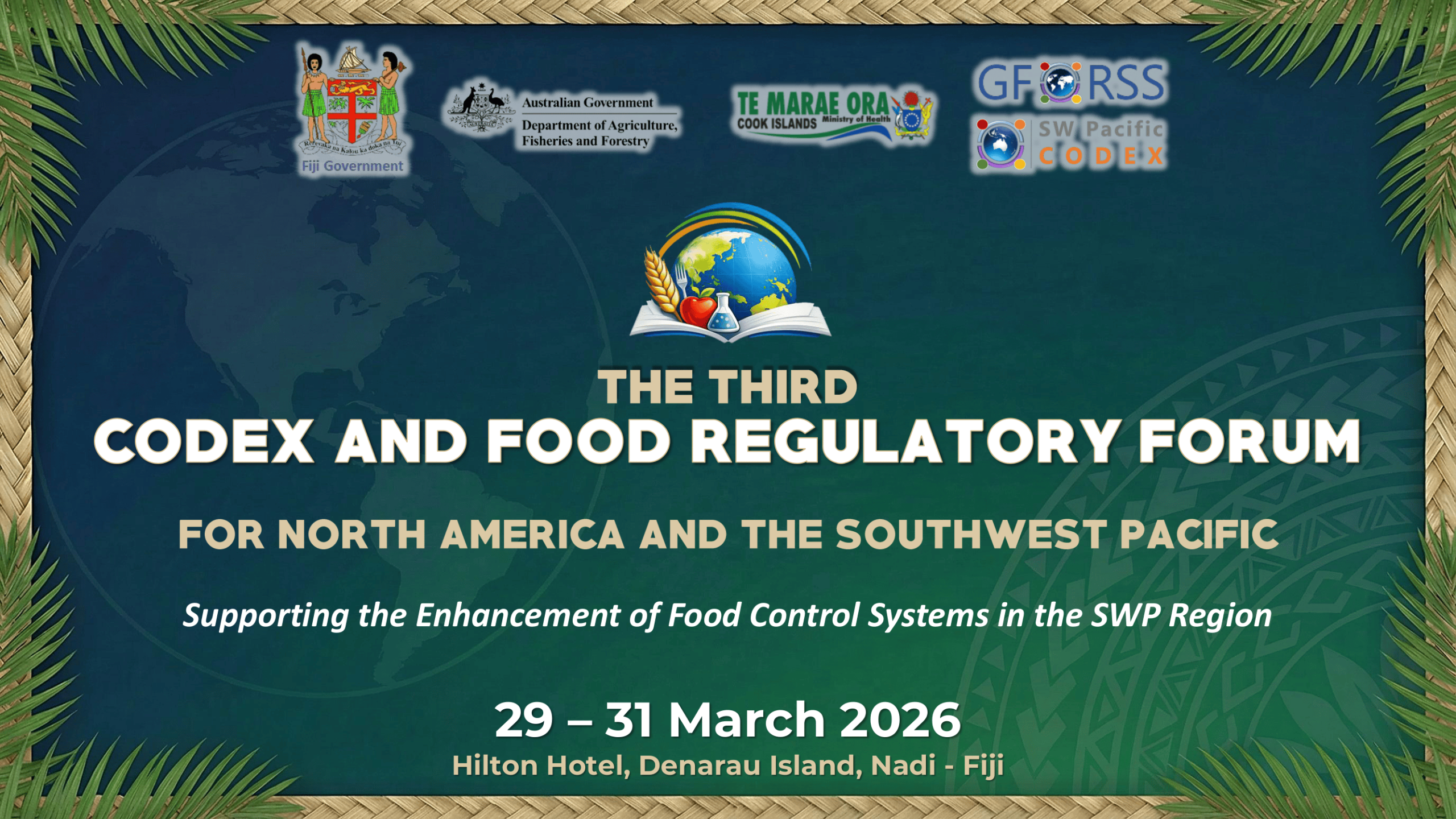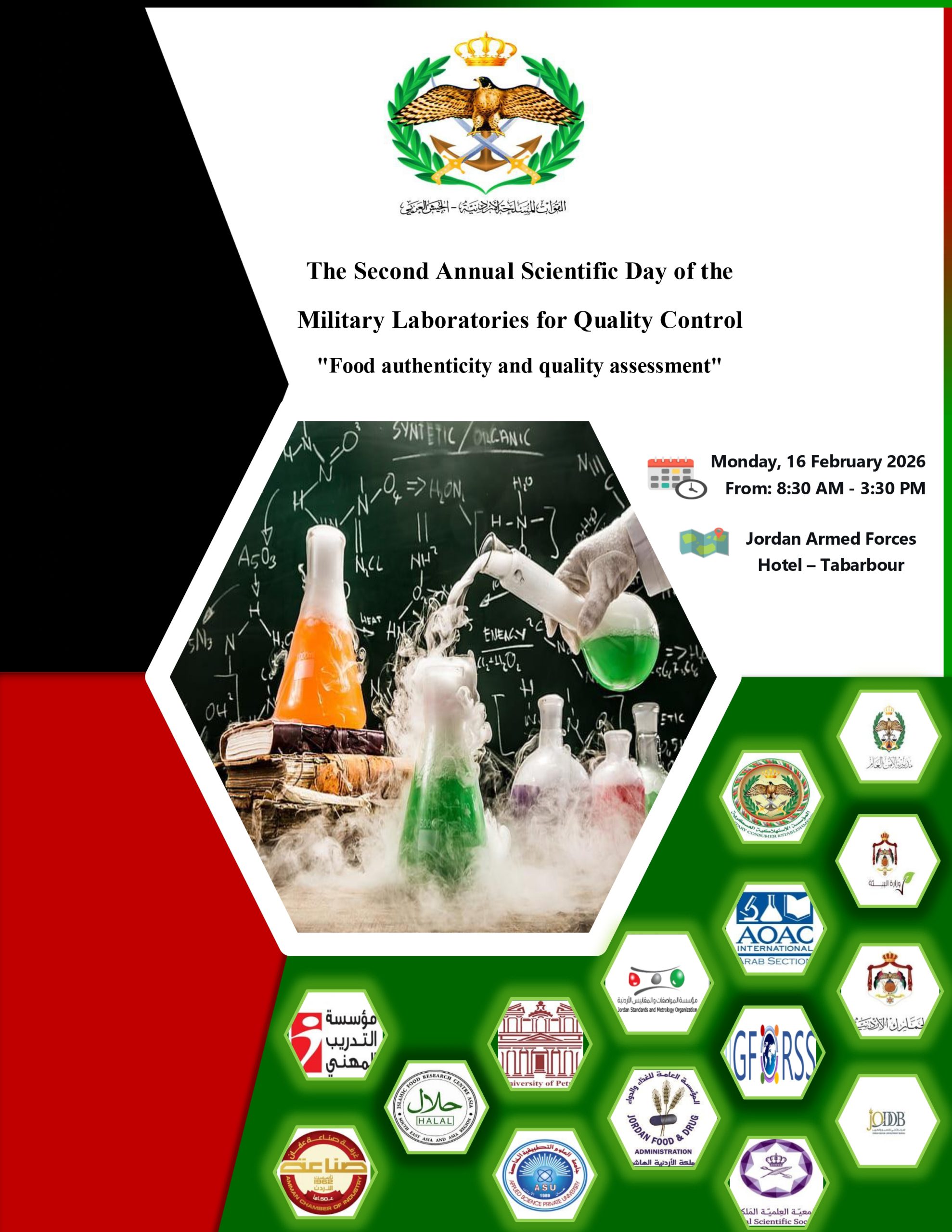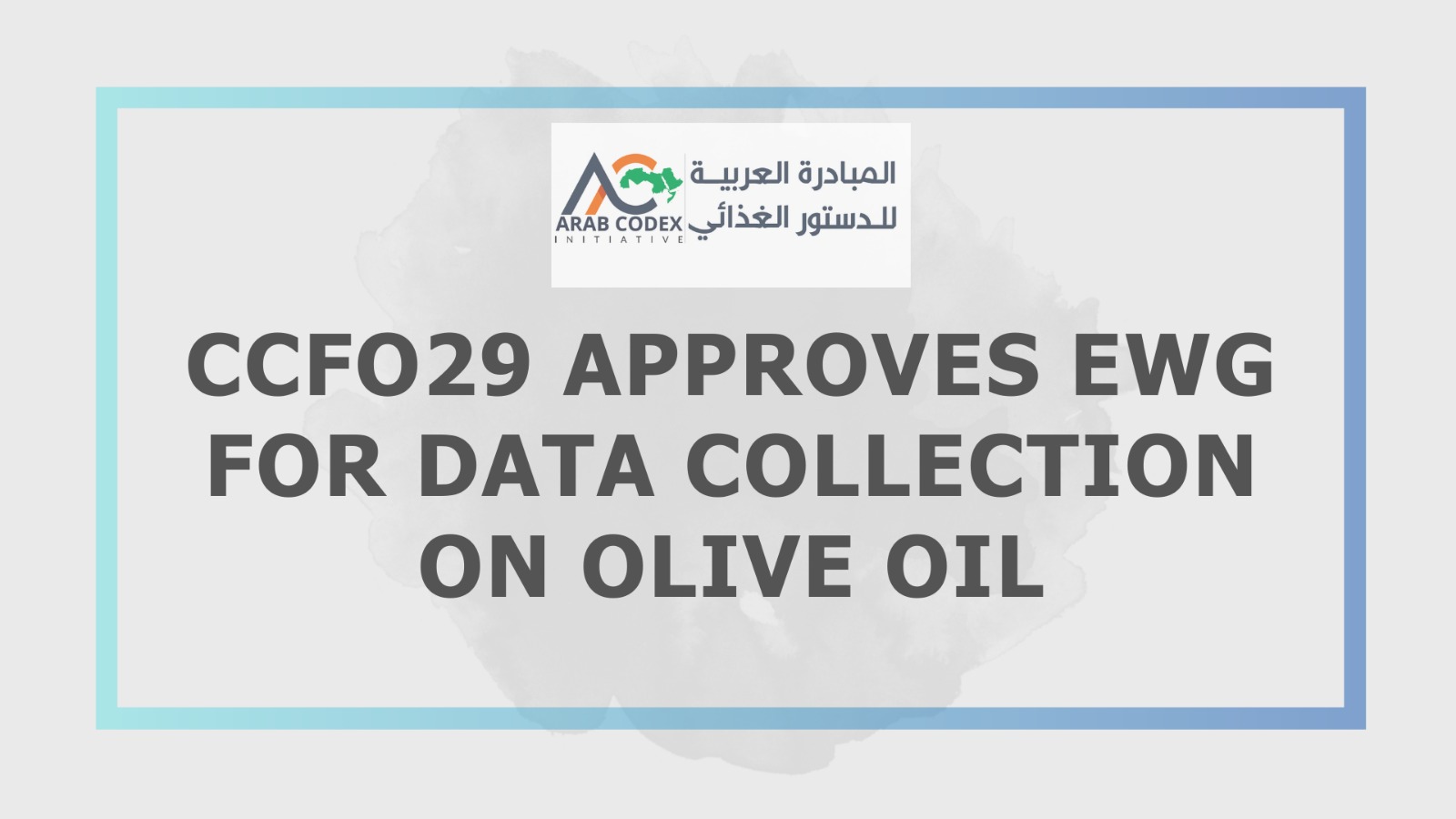Objectives
This document offers a review and analysis of the agenda items planned for discussion at the 32nd session of the Codex Committee on General Principles, scheduled to take place virtually from February 8th to February 17th, 2021 (8th, 9th, 11th, 12th, 15th and 17th The document is intended for possible use by the Codex communities of practice promoted by Scientists contributing to the Global Food Regulatory Science Society (GFoRSS) and PARERA, as part of their contribution to enhancing awareness and supporting effective participation in international standard setting meetings (Codex meetings) by representatives from members and observers.
The analysis provided in this article offers a factual review of some agenda items, their background and a discussion of some considerations. This analysis is indicative in nature and does not represent an official position of the organizations mentioned above i.e., PARERA and GFoRSS, their membership or their management.
Overall Comments on the Agenda
Key agenda items of the 32nd session of CCGP cover discussions on enhanced guidance and procedures related to Codex committees working by correspondence, as well as the review of structure and format of the procedural manual.
Agenda Item 2: Matters Referred (CX/GP 21/32/2)
- Item related to Sub-Committee of CCEXEC on the Statements of Principle Concerning the Role of Science
- With reference to CAC42 (July 2019), CAC43 (Sept/Oct 2020).
- With Reference to the results of CCEXEC80 (January 2021):
- The work of the CCEXEC Sub-committee tasked with this work is expected to continue with the same mandate and Terms of Reference (ToR) until CCEXEC81, under the chairmanship of Codex Vice-Chair Hariyadi.
- This was confirmed as part of the conclusion of CCEXEC80.
- CCGP does not have a formal role as such, in this work, other than to be at the receiving end of the outputs of this work, as other subsidiary bodies of Codex.
- Item related to CCEXEC Sub-committee on Codex and the Pandemic – Strategic Challenges and Opportunities (CX/EXEC 21/80/3)
- With reference to CAC43 (September/October 2020):
- The work of the CCEXEC Sub-committee led to the development of a set of recommendations that are being applied in the organization of virtual meetings for the 2020/2021 Codex season.
- CAC43 examined the outputs of the report and its recommendations; however, did NOT refer it to CCGP. As a result, CCGP is at the receiving end of these outputs as are all other subsidiary bodies of the commission – there is no formal role for the CCGP on this item, if the matter was not referred explicitly by the Commission.
- The Commission concluded that no further procedural work is needed at this time, noting that the Codex Secretariat will continue to confer with FAO legal office, with respect to voting matters, if voting was to take place as part of virtual meetings.
- There is an opportunity for all Codex subsidiary bodies to make full use of the remote working mechanisms available and tested during this period. This is equally applicable to Electronic Working Groups.
- With reference to CAC43 (September/October 2020):
Overall, it is important to note that all matters referred here are for information.
The formal role of CCGP to review or endorse procedures (“review or endorsement of procedural provisions/texts forwarded by other subsidiary bodies for inclusion in the Procedural Manual of the Codex Alimentarius Commission; and the consideration and recommendation of other amendments to the Procedural Manual”) only kicks-in when formally tasked by the Commission.
Agenda Item 3 : Information on Activities of FAO and WHO Relevant to the Work of CCGP
(CX/GP 21/32/3 and CX/GP 21/32/3 Add.1)
- This item is also an information item
- The progress towards the organization of the UN Food Systems Summit (FSS) planned in 2021 is appreciated.
- In accordance with Article 1(b) of the Codex Procedural Manual, Codex is charged with: “promoting coordination of all food standards work undertaken by international governmental and non-governmental organizations”. As a result, it is important that the “Codex Secretariat, and the chairperson and vice-chairpersons engage as appropriate in the discussions leading up to the summit”. This was further reaffirmed in the recent conclusions of the CCEXEC80 draft meeting report (January 2021) which also “encouraged Codex Members to engage in the country dialogues on the FSS”.
Agenda Item 4: Discussion Paper on Procedural Guidance for Committees Working by Correspondence (CWBC) (CX/GP 21/32/4 and CX/GP 21/32/4 Add.1)
Background
The 41st session of the Codex Alimentarius Commission (CAC41, July 2018) requested the CCGP to formulate procedural guidance for committees working by correspondence (CWBC) based on and consistent with relevant existing guidance in the Codex Procedural Manual. CCGP31 (2019) established an Electronic Working Group (EWG), chaired by New Zealand and co-chaired by the United States, Germany, and Japan, to make recommendations for consideration at this session.
Due to the COVID-19 pandemic and the postponement of CCGP32 from March 2020 to February 2021, the CCGP CWBC EWG had additional rounds of consultation, in addition to Circular Letter (CL) 2020/59/OCS-GP, which was due January 15, 2021.
Analysis
- The Electronic Working Group (EWG) has achieved great progress to define elements of procedural guidance for Committees Working By Correspondence (CWBC).
- It is important to maintain the option of committees working by correspondence in Codex, while ensuring consistency of their organization. Clear guidance would help uphold Codex values in the conduct of all Codex committees including CWBC (maintaining the same rules as for the conduct of physical meetings).
- It is important to distinguish Work by Correspondence from Virtual meetings. The latter are covered by discussions at the CAC and CCEXEC and are related to a mode of delivery – for regular committee meetings and the Commission – using technology mediated means, allowing “electronic live participation” instead of “physical participation”. Work by correspondence allows for off-line input and progress of the Committee deliberations.
- Some key points need consideration in relation to the current guidance:
- This guidance, and the additional provisions to the procedural manual, are welcome and necessary. They will help address consistency of organization and handling of CWBC.
- Additional clarification and development on certain points, such as: situations when CWBC may be considered a preferred option (when to resort to this option); and, in guiding chairpersons and members on their roles and participation, may be further required.
- This guidance may be refined through lessons learnt and experience gathered from the actual organization of CWBC
- The current guidance identifies, implicitly, situations when CWBC may be applied are related to instances where consensus is feasible and may be achieved (deemed achievable).
- A key provision in the guidance relates to measures that can be relied upon, should consensus not be achieved, or should work not progress in a satisfactory manner for CWBC. In particular, referral to other committees working via physical meetings, convening “live” or physical meetings of a Working Group or of the Committee offer some options to address these challenges. Voting should not be resorted to, as part of this practice.
- It is important that Voting be avoided as part of the practice applied for CWBC.
Conclusion
Overall, the EWG has accomplished great progress developing the sought-after guidance. The additional input received recently and the deliberations planned during CCGP32 will no doubt help improve the document.
A question remains as to whether this guidance should be included in the procedural manual, or whether it should be considered as part of the guidance offered to chairs of Codex Committees (Chairs Handbook).
Agenda Item 5: Revisions/Amendments to Codex Texts (CX/GP 21/32/5)
Background
This issue arose at CCGP31 (2019) through a CRD from the Secretariat (GP/31 CRD/10), which was filed too late for consideration at that session.
Analysis
This paper discusses issues that may be considered for further clarification in relation to updates to Codex standards, resulting from “corrections, editorial amendments”, “substantive amendments” or “revision”, with the need to clarify each of these instances. This may be particularly relevant in the case of standards issued by Committees that have since adjourned. The paper offers a discussion of the situations being considered for further guidance and opportunities to handle such change either through a swift consideration by the Commission (after possible advice from CCEXEC) or through a request that a project document accompanies the consideration of change, with the requirement to follow the step process.
In all instances, the Commission remains the primary decision-maker, as to the approach to be followed, after consideration of the nature of change. The paper offers possible workflows to be considered more systematically with respect to specific scenarios of change, as they are defined.
CCGP is invited to discuss the need to make such clarifications:
- Defining the changes that may occur or need to be considered for Codex standards.
- Defining systematic approaches to address the necessary changes along with identifying version tracking.
CCGP will recommend whether the Codex Secretariat pursues the preparation of a more comprehensive document suggesting the guidance for consideration by the Commission, which may be referred to CCGP (tasked to CCGP) to review and endorse.
Agenda Item 6: Format and Structure of the Codex Procedural Manual (CX/GP 21/32/6)
Background
At CCGP31 (2019), the Codex Secretariat volunteered to prepare a paper reviewing avenues to make the Codex Procedural Manual more accessible and easier to use. CCGP31 further clarified that the planned review “did not have the objective to make substantive changes but would seek to improve the usability of the PM”.
Analysis
The work undertaken by the Codex Secretariat on a searchable online version of the Codex Procedural Manual is valuable.
It is well noted that, should there be any need for changes to the Codex Procedural Manual, the Codex Secretariat should inform the Commission who will determine if / which issue(s) should be referred to CCGP. As per the TOR of the CCGP, the Commission continues to be the sole body able to task/refer items to the CCGP for consideration.
As noted under para 3.3 of the Secretariat paper, it is important that the Codex Procedural Manual be made available in a downloadable PDF format, either in its entirety or by sections.
Agenda Item 7: Discussion Paper on Monitoring the Use of Codex Standards (CX/GP 21/32/7)
Background
This paper was volunteered by the Delegation of France, subsequent to discussions at CCGP31, where no consensus was reached with regard to pursuing the establishment of a new monitoring mechanism for Codex standards and their adoption.
Analysis
The discussion paper offers a review of various practices of international organizations, particularly those involved in standardization-related activities, measuring the adherence of its members to the outputs / standards issued by the organization.
The Paper links this effort to the current commitment expressed in the Codex Strategic Plan 2020-2025 (adopted by CAC42 in July 2019) under Strategic Goal 3 (Increase impact through the recognition and use of Codex standards), to develop a mechanism to measure impacts of Codex standards.
The Paper notes a previous practice applied by Codex, related to the “Acceptance Procedure”, which was revoked in 2005, “due to the fact that Codex Members did not apply it in practice” – quoted from the discussion paper.
A few considerations:
- There are currently a number of mechanisms that attempt to capture the level of adherence to Codex standards, in particular under the auspices of WTO, where the SPS committee has a standing agenda item on monitoring the use of international standards, and where a mandatory notification requirement exists for food standards and regulations adopted by member states.
- The impact of Codex standards is not only reflected through the adoption of the standard by competent authorities. Some Codex texts are directed to food business operators. The impact of the uptake of the latter standards would be measured by the improvement of food safety and quality practices by a given food production sector / country / region.
- The role of the Regional Coordinating Committees could be further reflected upon to discuss the relevance of Codex work and standards on the food safety and quality systems developed in a given region.
- The level of investment needed by the Codex Secretariat, if indeed this role is to be devolved to the Secretariat, needs to be estimated and considered suitable in terms of return on investment.
Conclusion
While the paper offers a good analysis of mechanisms of monitoring of Codex standards, the input of the Codex Secretariat is needed with respect to the resources that may be required to envisage the various avenues discussed for this purpose.
Also, there may be value in discussing whether this “monitoring” is the only avenue to achieve the Strategic goal and associated objectives stated in the 2020-25 Codex Strategic Plan.
Agenda Item 8: Discussion Paper on Monitoring Codex Results in the Context of the Sustainable Development Goals (SDGs) (CX/GP 21/32/8)
Background
The delegation of France drafted the discussion paper, subsequent to the discussion at CCGP31, related to the development of indicators to show Codex’s contributions to achieving the SDGs, notably SDGs 2, 3, 12, and 17. Delegations expressed diverse views. The CCGP noted France’s offer to voluntarily prepare a discussion paper for consideration at CCGP32.
Analysis
- The paper reviewed various approaches pursued to track the progress towards achieving the SDGs, by various international organizations, and in particular, by the parent organizations of Codex (FAO and WHO).
- The paper notes that FAO and WHO have prepared a publication that provides an in-depth analysis of how Codex is contributing to the UN 2030 Agenda for Sustainable Development.
- The Codex Strategic Plan 2020-2025 accounts for the SDGs as part of the drivers of change and therefore the capacity of Codex to contribute to the global agenda, as part of its mandate.
- The Codex Secretariat, as well as FAO and WHO, continue to communicate about the possible impacts of Codex on the overall holistic approach advocated by the SDGs.
- While the discussion offered by the paper is useful, the resource implications related to implementing some or all of the proposed recommendations need to be fully considered in the context of the constrained resource environment of the Codex Alimentarius Commission and of the Codex Secretariat.




